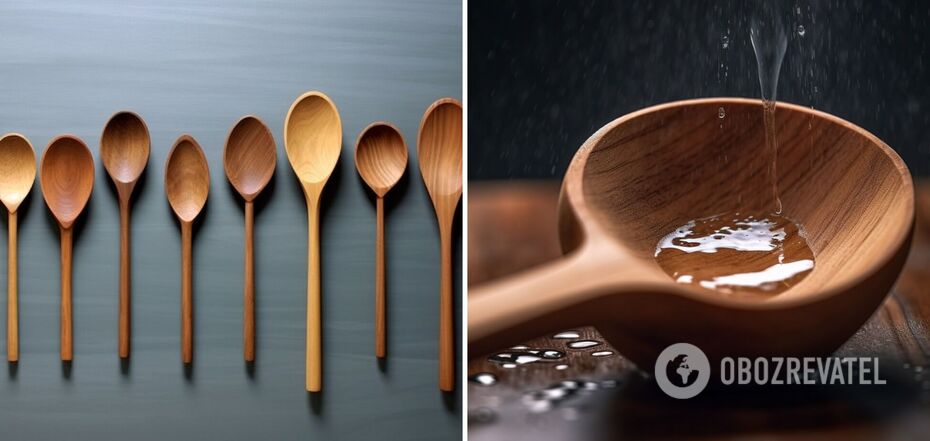Life
How to wash a wooden spoon properly: the experts gave tips
Wooden dishes are becoming more and more fashionable. People are attracted by its unusual appearance and environmental friendliness. In addition, it can be a real decoration of the interior. But some people who want to buy wooden spoons and bowls are stopped by the difficulty of caring for such utensils.
In fact, according to the publication Ideal Home, washing spoons, spatulas and other items made of wood is not so difficult. The main thing is to understand exactly what approach they need and what means are better to choose.
Why wooden dishes are not washed like other dishes
Unlike metal, plastic or silicone, wood has a porous structure, so over time it can accumulate bacteria inside. Therefore, such utensils need regular decontamination.
In addition, contact with moisture and high temperature can negatively affect the wood. It becomes more loose, deforms, cracks and loses its properties if the material is not washed properly. To avoid this, you need to follow the rules discussed below.
Find the right product
To wash wooden spoons and bowls well and safely, give preference to a mild dishwashing detergent. You can also find specialized liquids on the market. This, too, is a good choice for wood.
You should choose a soft sponge or use a cloth wipe. If desired, white vinegar or lemon juice can be added to the care - they will disinfect the wood. The water for washing should not be hot, but only warm.
Pre-washing
Before washing, remove any leftover food from the dishes. You can do this with the blunt side of a knife or other wooden object. Then rinse the dishes under warm running water to get rid of all residues.
Cleaning
Dissolve mild detergent in a basin or a sink full of water. Gently dip a soft sponge or cloth into the soapy water and squeeze out any excess liquid. Now the wooden spoon can be gently wiped down to wash off any residue. It is okay to scrub the object with the dirt, but not too hard, as this can damage the wood.
Rinse
Rinse the cleaned dishes with warm water to remove any soap residue. Make sure that you remove all traces of foam, because they can later give the food an undesirable foreign taste. In addition, soap foam is a good breeding ground for bacteria.
Drying
Carefully blot the wooden spoon with a clean, dry cloth to remove excess moisture. Leave it to dry completely in the open air. When drying wooden spoons, do not place them in direct sunlight or near a heat source, as this can cause the wood to warp or crack. Finally, make sure both sides of the spoon are properly dried to prevent mold or bacteria from growing on it.
Additional cleaning
If you want to disinfect your wooden spoons, treat them with baking soda and vinegar. The mild lye that is baking soda will dissolve dirt and grease, while the vinegar will neutralize odors and kill bacteria in the wood.
To prepare a disinfecting solution, mix equal parts vinegar and steep boiling water and add one or two teaspoons of baking soda to the mixture. Place a wooden dish in the resulting liquid and leave it for 15-20 minutes. Such a deep cleaning is recommended once a month.
Previously OBOZREVATEL told how to remove grease and limescale on any surface without store chemicals.
Subscribe to OBOZREVATEL channels in Telegram and Viber to keep up with the latest events.



























